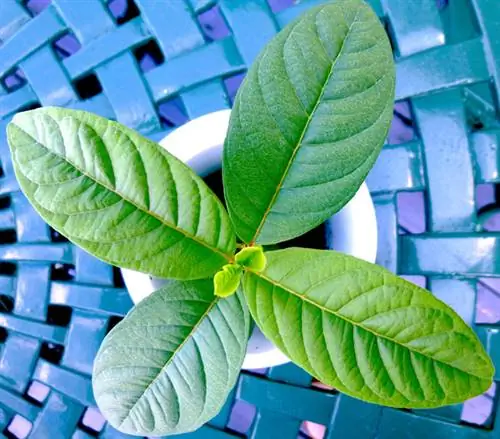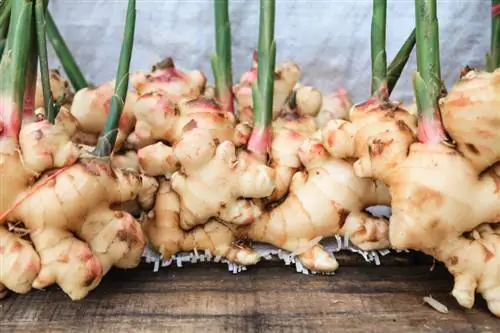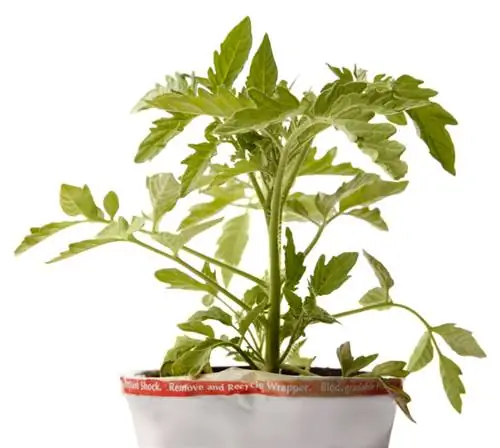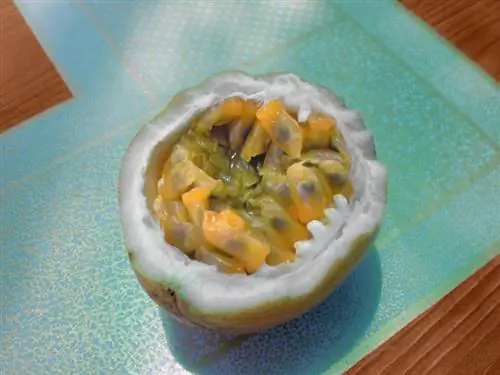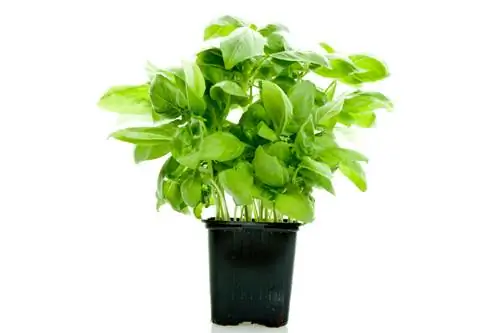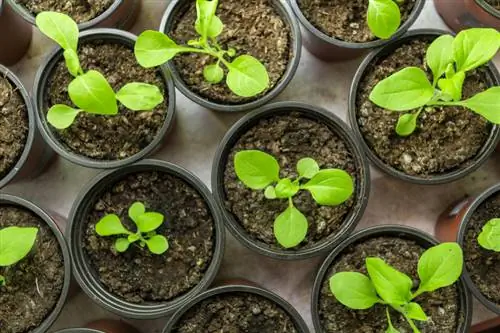- Author admin leonars@hobbygardeners.com.
- Public 2023-12-16 16:46.
- Last modified 2025-01-23 11:20.
Hardly anything is more fun than growing plants from tiny seeds - and after a few years even harvesting fruit from them. Even plant lovers without a particularly green thumb often have success with the guava, which comes from South America, as the exotic plant is considered to be quite uncomplicated and easy to care for. With a bit of luck, you can already harvest the first fruits about four to five years after sowing. You can find out how to get there in this article.
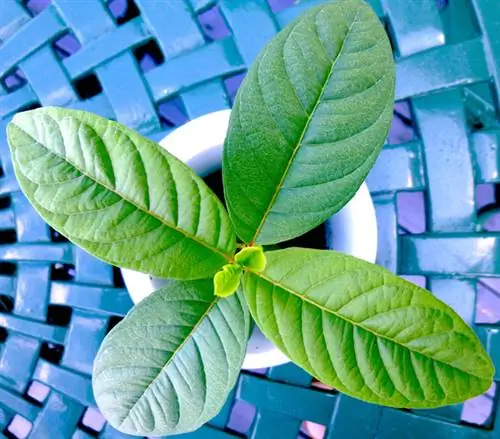
How to grow guavas from seeds?
When growing guava, you should clean seeds, let them soak in lukewarm water for at least 24 hours, plant them a few millimeters deep in potting soil, keep the substrate slightly moist and germinate at 25 degrees Celsius. Sowing in spring is optimal.
True guava or Brazilian guava?
Before you get seeds and get to work with joy, first take a look at which guava you actually got. Various plants are sold under this name, although they are quite similar in terms of the conditions for cultivation and subsequent care. With one serious difference: the Brazilian guava (Acca sellowiana), also known as pineapple guava or feijoa, is significantly tougher than the real guava (Psidium guajava). In contrast to the real guava, the pineapple guava can even tolerate light frosts. That's why this species is grown wherever it is basically too cold for the guava.
Growing from seeds is quite easy
Growing from self-collected or purchased seeds is quite easy for both types. All you have to do is:
- If you take the seeds from fresh fruit, you must first remove the pulp.
- It is best to clean them with warm water and kitchen towels.
- Then let the seeds soak in lukewarm water for at least 24 hours.
- In the meantime, fill potting soil (€6.00 on Amazon) into small plant pots.
- Plant the seeds a few millimeters deep into the substrate.
- Keep the substrate slightly moist.
- Place the pots in an indoor greenhouse and provide even heat.
- Temperatures of around 25 °C are best for cultivation.
In principle, sowing is possible all year round, but you will achieve the best success in spring.
Tip
Regardless of the species, guavas should overwinter frost-free, but cool and as brightly as possible.

